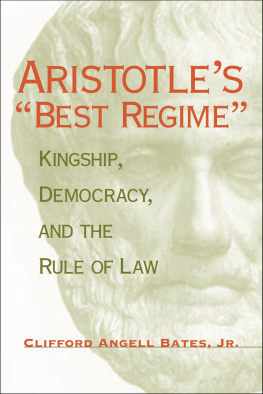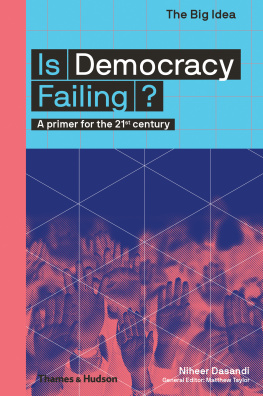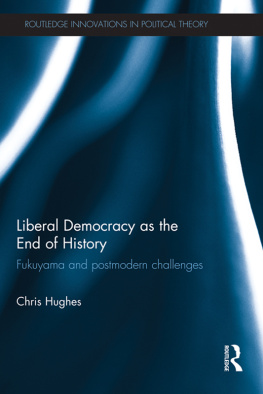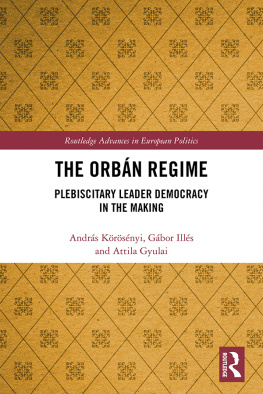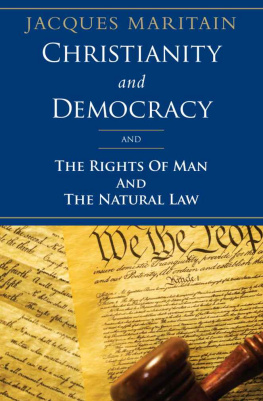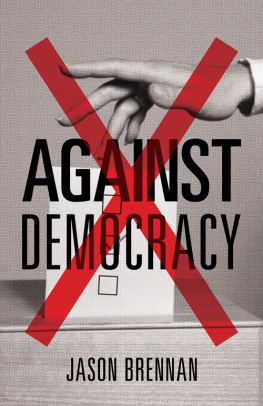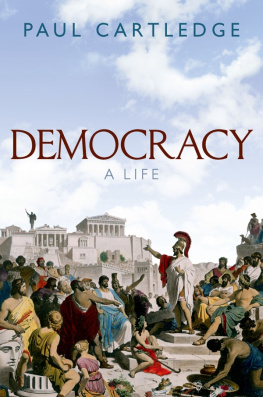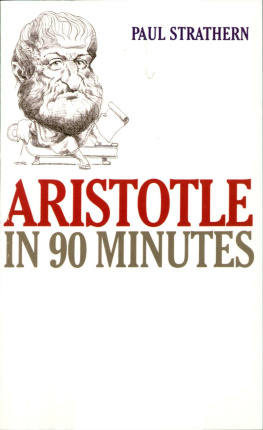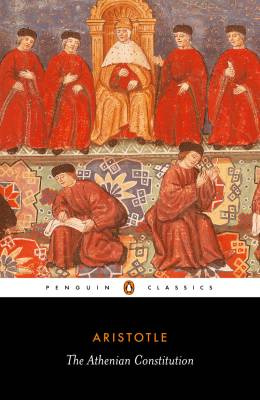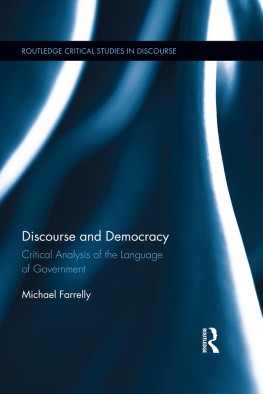POLITICAL TRADITIONS
IN FOREIGN POLICY SERIES
Kenneth W. Thompson, Editor
T HE VALUES , traditions, and assumptions undergirding approaches to foreign policy are often crucial in determining the course of a nations history. Yet the interconnections between ideas and policy for landmark periods in our foreign policy relations remain largely unexamined. The intent of this series is to encourage a marriage between political theory and foreign policy. A secondary objective is to identify theorists with a continuing interest in political thought and international relations, both younger scholars and the small group of established thinkers. Only occasionally have scholarly centers and university presses sought to nurture studies in these areas. In the 1950s and 1960s the University of Chicago Center for the Study of American Foreign Policy gave emphasis to such inquiries. Since then the subject has not been the focus of any major intellectual center. The Louisiana State University Press and the series editor, from a base at the Miller Center of Public Affairs at the University of Virginia, have organized this series to meet a need that has remained largely unfulfilled since the mid-1960s.
Copyright 2003 by Louisiana State University Press
All rights reserved
Manufactured in the United States of America
First printing
12 11 10 09 08 07 06 05 04 03
5 4 3 2 1
DESIGNER : Andrew Shurtz
TYPEFACE: Adobe Garamond
TYPESETTER: Coghill Composition Co., Inc.
PRINTER AND BINDER: Thomson-Shore, Inc.
ISBN 0-8071-2830-9 (cloth); ISBN 0-8071-2833-3 (paperback)
The paper in this book meets the guidelines for permanence and durability of the Committee on Production Guidelines for Book Longevity of the Council on Library Resources.

In memory of Melvin E. Bradford, a true defender of the Republic and its Constitution
Soldiers, march! we shall not fight again
The Yankees with our guns well-aimed and rammed
All are born Yankees of the race of men
And this, too, now the country of the damned.
ALLEN TATE , To the Lacedemonians
ACKNOWLEDGMENTS
T HE SUBJECT of Aristotles best regime first came to my attention when I took two graduate seminars on Aristotles Politics at the University of Dallas. In those classes Dr. Leo Paul de Alvarez opened my eyes to the importance of political things and awakened my interest in Aristotles treatment of the pambasileia.
When I began searching for a dissertation topic, M. E. Bradford encouraged me to take up my work on Aristotle, describing it as a noble and worthy task. I eventually settled on Aristotles themes of kingship, the rule of the many, and the rule of law. Mel was both a mentor and a dear friend. He forced me to reshape a good many of my prejudices and helped me replace them with theories guided by experience and prudence. He also encouraged me to return to graduate school, after I left Dallas in 1989. His sudden and untimely death in 1993 deprived the American academic community of a unique voice. Mels last gift to me was to secure from the Earhart Foundation a generous summer grant in 1993, which gave me the opportunity to write the outline and a substantial amount of the text of my dissertation.
Throughout the process of writing the dissertation at Northern Illinois, I was ably guided and assisted by Dr. Larry Arnhart, my dissertation adviser, and Dr. David Gorman, who served on my dissertation committee and whose skills as a literary critic and editor were invaluable to my work on the topic. Many of the sections here were originally presented as papers at the conferences of various political-science associations, and the responses to those papers helped me to refine my ideas and to forge ahead with my work, so I would like to thank those people who organized those panels, chaired them, and commented on my papers.
I must particularly mention Dr. George Anastaplo, who has encouraged and challenged me in my various academic endeavors. His willingness to stand up for principle, and his desire to live an examined life, have encouraged me in my own journeys. He stands as an example of how one should live rightly.
Many people have read earlier versions of this work and served as a sounding board for the basic thrust of my arguments. Their numbers are too great to mention each by name, but they should know who they are, so I want to thank them all. Especially important have been the friends I have met as an English expatriate living in Slovakia and Poland, who have helped me adjust to and survive in my new environments.
I must also thank my good friend Jerzy Ciechanski. I met George (as he likes to be called) when we were both doctoral students in Dallas, and we became close friends. I am extremely grateful to him for advising me to relocate to Poland in 2000 and for directing me to Warsaw University, where I teach today.
I also want to thank my former colleagues from Central Connecticut State University in New Britain and from City University Slovakia in the Slovak Republic and my current colleagues at Warsaw University. Their hard work and dedication constantly remind me why I have chosen this way of life.
I also should not forget two very important people, my mother and my sister, for their support not only through graduate school and the writing of my dissertation and the revising of it for this work, but also for support of my adventure abroad. Their support both financial and emotional has been very essential and I very much like to thank them for it.
Finally, I would like to thank Maureen Hewitt and Kenneth Thompson for their support of this book in its early stages, and also thank Gerry Anders, my editor, Ruth Laney, my copy editor, and all the others at LSU Press who helped to make this book a reality.
ARISTOTLES
BEST REGIME
INTRODUCTION
Alla man ei oi phulakes ma eudaimones, tines etepoi?
If those who guard [the community] are not happy, who else will be?
Politics 2.5.1264B2122
T HE LAST DECADE of the twentieth century produced a boom in scholarship concerning Aristotelian political philosophy. This reawakened interest in Aristotles political thought, and thus all the new attention to the Politics, seems due in part to the belief that liberal democracy needs a renewed link to the common good (Galston 1991, Yack 1993, Salkever 1991, Nussbaum 1990a, 1992, Sullivan 1984). This is needed to escape the trend to social apathy inherent in liberalisms tendency towards moral individualism. Many authors are attracted to the Aristotelian attempt to strengthen democratic principles by linking them to the attempt to form the just political community (Yack 1993, Nussbaum 1990a, 1992, Salkever 1991).
The recent collapse of the Soviet Union and other Marxist regimes around the world has been popularly understood to be a rejection of Marxism and Marxist political ideas. As Francis Fukuyama (1992) argues, with Marxism removed, the conflict among differing ideologies seems to have been resolved with liberal democracy as the only survivor. Although this may be the political reality of the third millennium, many scholars of political thought still find liberal democratic principles objectionable.

